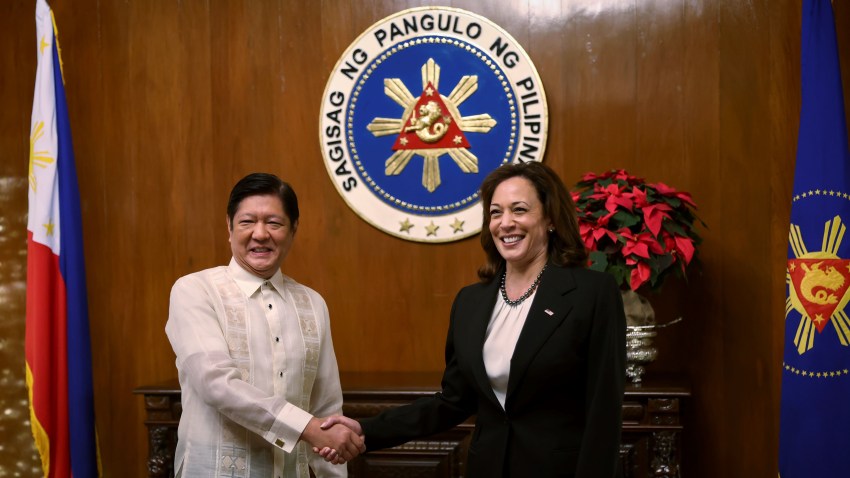Philippine President Ferdinand Marcos Jr. met in Manila over the weekend with U.S. Vice President Kamala Harris, whose visit was meant to show Washington’s high-level support for its Southeast Asian ally. Harris subsequently stopped at Palawan, one of the Philippine islands at the heart of Manila’s territorial dispute with Beijing in the South China Sea, pledging a U.S. military response under the two countries’ mutual defense treaty in the event of an armed attack by China.
The visit’s emphasis on security issues was an effort to close the door on a period of tensions under Marcos’ predecessor, former President Rodrigo Duterte. During the first five years of his six-year presidency, Duterte wooed China incessantly, in an effort to attract much-needed investment in the Philippine economy and because of his longstanding anti-American viewpoints. As part of this effort, he often downplayed China’s illegal incursions in the South China Sea and did nothing to enforce the ruling of a 2016 case at The Hague that found such incursions illegal. At the same time, Duterte consistently undermined the U.S.-Philippines security partnership, using inflammatory and coarse language to verbally harangue Washington in the process.
But if security issues were front and center during Harris’ visit, the question of human rights was also on the agenda. The Philippines’ rule of law, never strong, had been dramatically undermined by Duterte’s brutal war on drug-related crime, which included arbitrary and extrajudicial killings, as well as his attacks on the judiciary, the media and other institutions.

